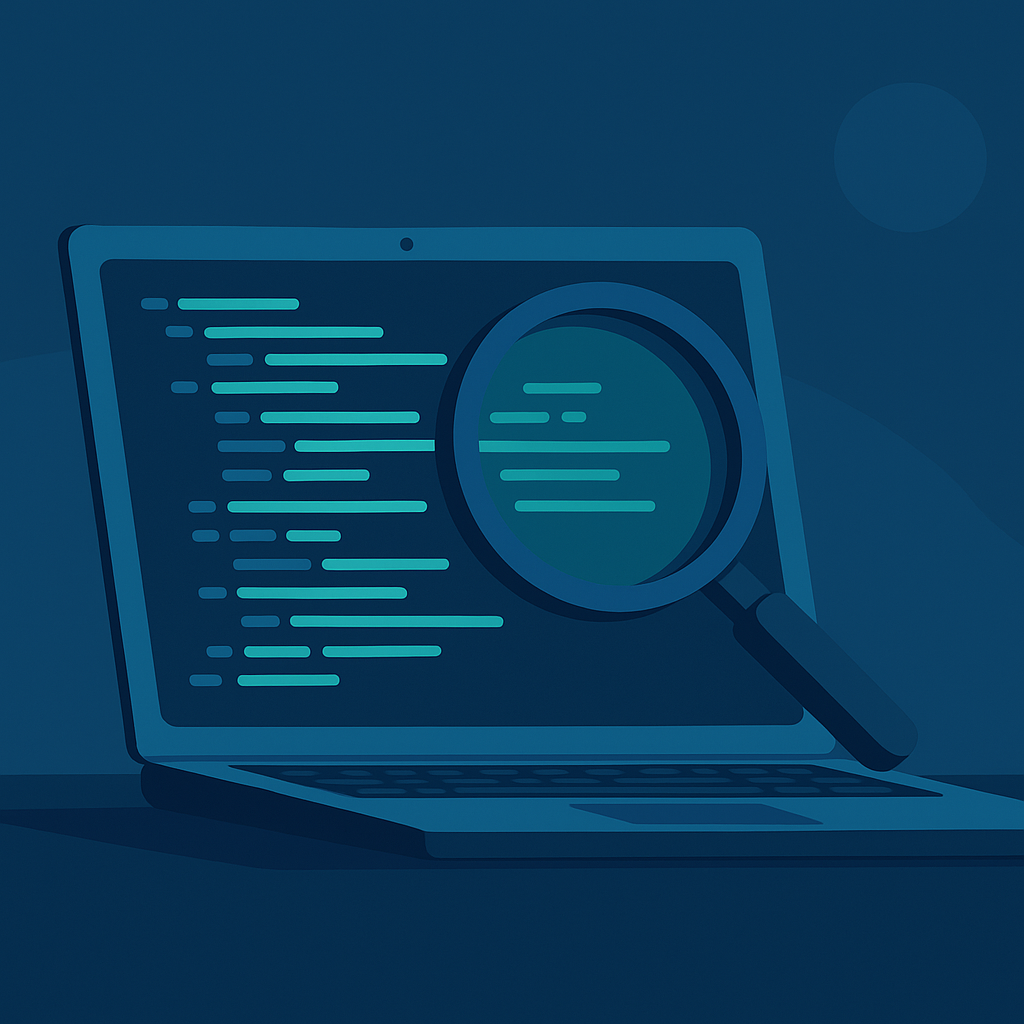In today’s digital world, having good software is very important for your business. It’s not just about launching it fast; the software also needs to be well-organized, scalable, and secure. This is where working with a code audit company comes in handy. Whether you are expanding your software, planning to sell it, or fixing old technical issues, a detailed code audit can find hidden problems and help guide your software development process.
Code audits are critical for keeping your software healthy, secure, and efficient. They are not just routine tasks. Businesses aiming for long-term growth should focus on performing code audits and using them effectively.
What a Code Audit Typically Covers:
- Code quality and readability
- Security risks and vulnerability assessments
- Dependency and version control hygiene
- Performance bottlenecks
- Architectural decisions and scalability concerns
- Compliance with industry standards (e.g., OWASP, GDPR, HIPAA)
Although internal teams can perform basic revisions, an external code audit company brings new perspectives, proven methodologies, and a higher level of objectivity to the table.
When Should You Consider a Code Audit?
Code audits are most valuable during strategic inflection points or before significant investments are made. They’re not just about identifying problems, but about enabling better decision-making.
Common Triggers for a Code Audit:
- Pre-funding or M&A due diligence
- Post-MVP stage before product scaling
- Transitioning between development teams
- Rising technical debt or recurring production bugs
- Expanding into regulated markets
In many of these situations, the stakes are enormous; system failures, delays, or breaches can cause lost confidence, income, or even legal action.
Code Audit vs. Code Review: What’s the Difference?
The terms ‘code review’ and ‘code audit’ may seem similar, but they are actually different. A code review happens during daily development work. It’s done by someone on your team to check if the code is correct, if it follows the right syntax, and if there can be small, quick improvements. In contrast, a code audit is much more detailed. It covers the whole codebase or at least the crucial parts of it. The focus here is on how well the code will last over time, how easy it is to maintain, and understanding any risks that might be present.
Key Differences Between Code Review and Code Audit:
- Scope:
- Code review looks at recent changes.
- Code audit evaluates full modules or the entire codebase.
- Timing:
- Code review happens continuously during development.
- Code audit is performed at strategic points—like before scaling or release.
- Purpose:
- Code review ensures code works and follows team standards.
- Code audit assesses long-term quality, security, and architecture.
- Who performs it:
- Code review is done by in-house developers.
- Code audit is usually handled by external experts.
- Focus areas:
- Code review targets syntax, logic, and immediate issues.
- Code audit digs into maintainability, scalability, and risk.
Top Benefits of a Code Audit
1. Early Detection of Critical Bugs and Vulnerabilities
One of the most compelling reasons for investing in a code audit is to identify and mitigate critical issues before they escalate into major incidents. Many large-scale data breaches have stemmed from avoidable coding flaws that would’ve been caught in a structured audit.
2. Improved Maintainability
Code that’s hard to read or poorly structured becomes a liability over time. Audits often reveal duplicated logic, outdated frameworks, or hidden complexity. Fixing these improve productivity and reduces onboarding time for new developers.
3. Risk Mitigation in Regulated Industries
For healthcare, finance, or logistics companies, code audits aren’t optional—they’re part of staying compliant. Auditors can flag non-conformities in how user data is handled or stored, minimizing exposure to regulatory fines.
4. Third-Party Validation for Investors or Buyers
If you’re looking to raise capital or sell your software, a clean bill of health from a reputable code audit company like DevCom adds credibility. It assures investors that the software is not a “black box” riddled with debt.
5. Architecture Alignment and Scalability
Fast-growing applications often accumulate ad hoc architectural choices. Code audits help realign the codebase with the long-term business vision, ensuring it can scale without frequent rewrites.
Common Issues Found During Code Audits
Even mature applications are not immune to hidden flaws. Some of the most frequent issues uncovered include:
- Hardcoded credentials or insecure storage
- Poor separation of concerns (e.g., logic in views)
- Overreliance on deprecated or unmaintained libraries
- Circular dependencies and tight coupling
- Lack of automated testing or CI/CD integration
- Inadequate error handling or logging
Addressing these not only strengthens the system technically but boosts developer morale by removing legacy headaches.
Challenges and Misconceptions
Despite their value, code audits can be misunderstood or underutilized due to several myths:
“Audits slow down development”
In reality, audits streamline future development by exposing inefficiencies and reducing rework.
“Only legacy systems need audits”
Even greenfield projects benefit from early architectural validation to avoid costly mistakes.
“We already have testing, so we don’t need audits”
Testing verifies functionality; auditing validates structure, scalability, and security.
How to Prepare for a Code Audit
To get the most out of a code audit, preparation is key. Here’s how you can ensure the process is smooth and effective:
- Document the tech stack and system architecture.
- Identify critical modules or pain points to prioritize.
- Grant access to version control systems, CI/CD pipelines, and test environments.
- Assign a liaison—someone who understands both technical and business context.
- Be transparent about known issues or limitations.
By approaching the audit as a collaborative effort, rather than a compliance hurdle, you’ll generate more actionable insights.
Selecting the Right Code Audit Company
Not all vendors are equal. When choosing a partner, look beyond the marketing pitch.
Key Criteria to Consider:
- Proven experience with similar tech stacks
- Case studies or testimonials from past audits
- Methodology transparency
- Security protocols and NDA compliance
- Ability to translate findings into practical recommendations
DevCom, for instance, combines 20+ years of experience with a strong consulting backbone—making them not just auditors, but strategic allies.
Conclusion: Build for the Future, Not Just Today
In the world of software, change never stops. Frameworks improve, user needs grow, and risks become more complex. Having a strategy for regular code audits with a trusted partner keeps your foundation strong.
Instead of constantly dealing with quick fixes, you get a clear way forward. You achieve a scalable structure, secure code, and systems that are easy to maintain as your business advances.
Whether you’re planning for new investors or just want your platform to last, doing a code audit is more than a smart move—it gives you a real advantage.
Published: August 7, 2025





